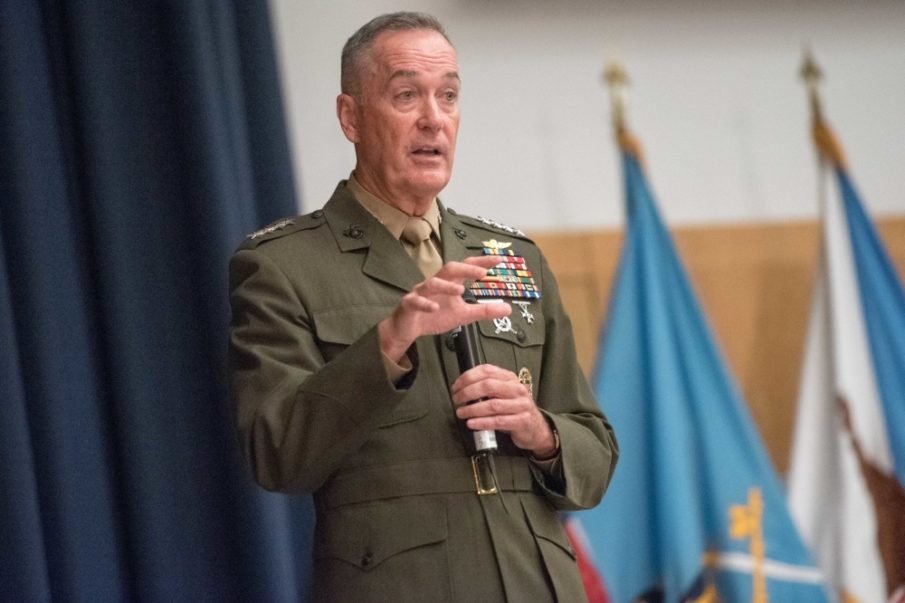Chairman of the Joint Chiefs of Staff General Joseph Dunford will meet today with his Russian counterpart, General Valery Gerasimov, to discuss U.S.-Russian military relations at a time of seemingly heightened tensions.
The meeting between the two military leaders will be the first face-to-face meeting of its kind since the Russian annexation of Crimea in 2014.
With allegations of Russian interference in everything from the 2016 presidential election, to accusations of possible collusion from National Security Advisor Michael Flynn with Russian politicians, to sudden interest in a routine Russian navy patrol off the coast of Connecticut, it’s starting to smell like a reboot of the Red Scare.
But with U.S. and Russian warplanes sharing airspace above Syria as they prosecute targets, and special operations forces operating in close proximity to one another on the ground, direct contact and some level of cooperation with the Russians approaches inevitability as the Syrian Civil War progresses.
In the face of criticism that without a coherent Russia policy from the Trump administration, engagement with the Russians is a waste of time, it appears General Dunford is moving to establish some sort of common ground.
The Pentagon says the goal of the meeting is to focus on “the current state of U.S.-Russian military relations and the importance of consistent and clear military-to-military communication to prevent miscalculation and potential crisis.”
That relationship seems fraught with potentially dangerous disagreement, from provocative actions from both countries. The U.S. is moving greater numbers of ground forces into eastern Europe and conducting major naval exercises in the Black Sea as a direct counter to recent Russian aggression. Russia is simultaneously buzzing U.S. warships with fighter bombers and deploying a cruise missile in violation of a major U.S.-Russia arms treaty from the 1980’s.
Still, Vladimir Putin has signaled that he desires a positive relationship with the United States, at least when it comes to sharing intelligence, saying it is in “everyone’s best interests.” Until the political situation can be resolved, productive and clear communication between the U.S. and Russian militaries will be a crucial first step in avoiding unnecessary military conflict.
Image courtesy of the Department of Defense
Already have an account? Sign In
Two ways to continue to read this article.
Subscribe
$1.99
every 4 weeks
- Unlimited access to all articles
- Support independent journalism
- Ad-free reading experience
Subscribe Now
Recurring Monthly. Cancel Anytime.











COMMENTS